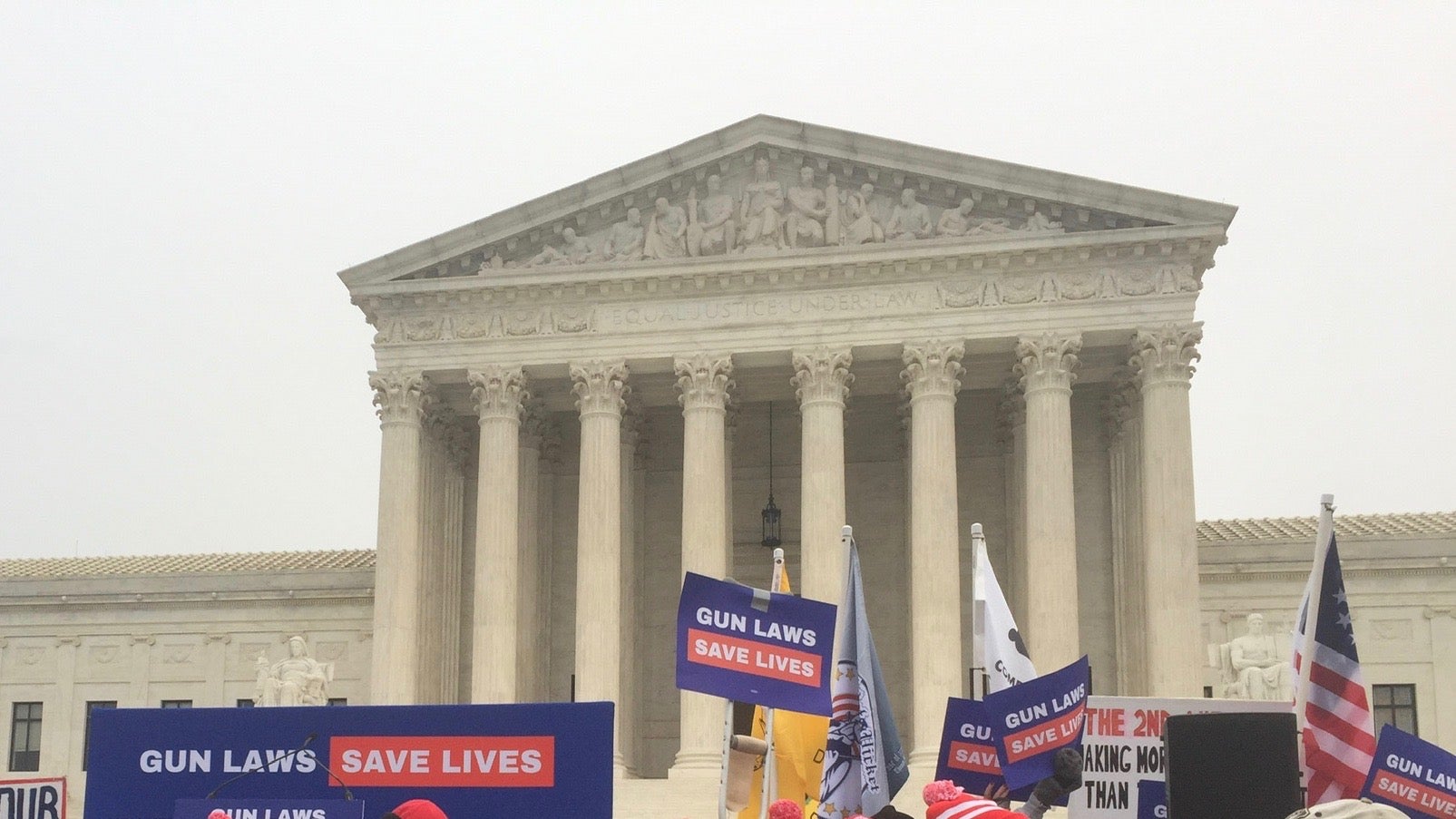Dissenting justices claim Supreme Court was “manipulated” in New York gun case
The US Supreme Court today issued a per curiam opinion—an unsigned decision, often signaling unanimity—dismissing a supremely controversial New York gun law case that had Americans up in arms. But the justices were not all in agreement here.


The US Supreme Court today issued a per curiam opinion—an unsigned decision, often signaling unanimity—dismissing a supremely controversial New York gun law case that had Americans up in arms. But the justices were not all in agreement here.
The case arises from a New York City gun licensing scheme that limited transportation of firearms registered to a particular location. Members of the New York State Rifle and Pistol Association (NYSRPA) sued the city, arguing a violation of the Second Amendment right to bear arms. They needed to transport their guns—locked and unloaded—to firing ranges, shooting competitions, and second homes, and said the constitutional right wasn’t “homebound.”
When the gun group’s challenge reached the high court and was granted review in January 2019, the city and state modified their rules and regulations to allow the transport of guns, and then urged the justices to dismiss the matter as handled. The NYSRPA, however, countered that issues remained: Could gun owners, for example, stop for coffee, food, or bathroom breaks while traveling with firearms in the state?
The gun group wanted the court to decide the firearms case, the first on this matter at the high court in over a decade, on substantive grounds. Progressives, however, worried that the National Rifle Association and conservative groups were hoping a newly constituted bench, now including Neil Gorsuch and Brett Kavanaugh, would deliver an opinion strongly supporting the Second Amendment and limiting firearms safety measures. Gun safety advocates hoped the case would be dismissed to avoid such a fate, and got their way.
But while Kavanaugh joined the majority today, agreeing with the procedural resolution of the case, he also stated that he supported the substantive analysis laid out in a dissent by Samuel Alito, who was joined by Gorsuch and Clarence Thomas. In other words, the next such case to make its way to the high court may work out just as the NRA hoped and gun safety advocates feared.
The majority of the justices today found that the case based on the old rules no longer needed deciding, but acknowledged that the legal framework had changed. “We do not here decide that dispute about the new rule,” they wrote. Instead, they vacated the lower court’s decision and remanded the matter back, allowing “for further proceedings in which the parties may, if necessary, amend their pleadings or develop the record more fully.”
In other words, the majority split the difference between the parties, more or less. They gave New York authorities what they sought, but allowed the gun association to work out claims based on the new rules in the lower court.
Alito’s dissent protested the majority’s take. ”By incorrectly dismissing this case as moot, the Court permits our docket to be manipulated in a way that should not be countenanced,” Alito argued.
The dissenting justices say that if there are any remaining issues, like the coffee break question, then the case isn’t moot. Alito’s opinion also references the political brouhaha surrounding this case, explaining:
Five United States Senators, four of whom are members of the bar of this Court, filed a brief insisting that the case be dismissed. If the Court did not do so, they intimated, the public would realize that the Court is “motivated mainly by politics, rather than by adherence to the law,” and the Court would face the possibility of legislative reprisal.
Although he doesn’t say so explicitly, Alito seems to suggest that his colleagues in the majority crumbled under this pressure, writing, “Regrettably, the Court now dismisses the case as moot. If the Court were right on the law, I would of course approve that disposition.”
The “friend of the court” brief Alito refers to did set off a firestorm of controversy, and was dubbed an “enemy of the court” filing by the Wall Street Journal editorial board. In response to this submission, Senate majority leader Mitch McConnell and Republican lawmakers last August sent the Supreme Court a strange letter reassuring the justices that they ought not be intimidated by the rude submissions of Democratic politicians, yet including a similarly menacing message. In the letter, McConnell and his colleagues expressed fear that Americans will be unable to trust the court if the justices don’t go forward and decide the case, despite pressure from Democrats, lest they seem to be responding to politicians’ concerns.
Ultimately, the justices heard the case. In December at oral arguments, they hinted at their positions, borne out today.
Gorsuch called New York’s new legislation and rules “a herculean late-breaking effort” to avoid constitutional review by the Supreme Court. Meanwhile Sonia Sotomayor told the gun group’s counsel that he was “asking [the justices] to opine on a law that’s not on the books and Ruth Bader Ginsburg asked, “What’s left of this case?”
Alito had made it evident that he was eager to decide the matter on constitutional grounds. He called an attempt to dismiss the case “unfair” to the gun group. Where other justices were mostly focused on the question of mootness, Alito insisted New York City’s counsel discuss the Second Amendment and offered new hypothetical situations the gun owners hadn’t even raised themselves. Under the new rules, he asked, could licensed firearm carriers from the city stop at their mother’s house and help with chores for an hour or would this violate the law requiring “direct and uninterrupted” travel?
Now, it seems this scenario will have to be considered by a lower court if the gun group adopts Alito’s suggestion.